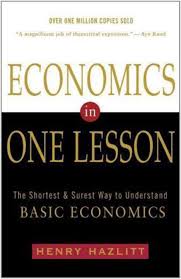Counting the Cost - A Review
Capitalism is often used as a curse word in contemporary political discourse. For others, it is used as a description of ultimate, unadulterated good. The term, coined by opponents of a free market, has so many definitions that it’s sometimes hard to figure out exactly what those that use the term mean by it. For some that dislike free market economics, capitalism is responsible for everything that is wrong with the world. For some that prefer a free market, capitalism is the sum of all the world’s goodness.
In reality, of course, the answer is somewhere in the middle. However, it is often hard to get people on either side to listen to legitimate critiques of capitalism and responses to those critiques. A recent volume published by The Institute for Faith, Work and Economics provides a reasoned and reasonable critique of capitalism, that in the end commends continued support for free market economics. This is an important book precisely because it takes the critiques of opponents to free market economics seriously and addresses them from a distinctly Christian perspective.
Summary and Analysis
Counting the Cost: Christian Perspectives on Capitalism consists of twelve chapter-length essays that rebut common objections to capitalism. The book opens with one of the final essays penned by Michael Novak, which considers the impact and validity of his book The Spirit of Democratic Capitalism in the three decades after it was published. Novak’s epilogue from perhaps his most significant work calls for a continual reforming and humanization of our economic system, with a significant emphasis on pursuing the common good in a free society in the economic, political, and social orders. He notes that the apparent moral slide (especially in a lack of compassion for one another) must be corrected or our free system will not survive.
In Chapter Two, Jonathan Pennington outlines a vision for human flourishing built on Scripture. This is a necessary beginning point for Christians, since such a vision should shape the goals and means of any ethical economic systems. Critically, Pennington highlights the reality that flourishing is distinct from being wealthy. The goal of Christians as they engage in capitalist society is not merely to build wealth, but to encourage holistic well-being.
Chapter Three takes on the fairly common argument that capitalism, ipso facto, is contrary to Christianity. Here Art Lindsley explains why Scripture does not, as some claim, actually extol the necessity or benefits of socialism. However, the reader will aptly note, capitalism has enabled some significant abuses, which some argue makes the system itself immoral. The fourth chapter, therefore, takes up the question of whether capitalism is antithetical to Christian morality because it is based on greed. New Testament scholar David Kotter argues that greed is a real danger in capitalistic systems, but that the system is not dependent upon greed, as some critics argue. While there is a need for moral reform by market actors, the system should not be discarded simply because it has been misrepresented or, as every system is due to human sin, abused.
Chapter Five asks whether capitalism as a system is fundamentally exploitative. This is based on the sometimes states assumption by some critics of free markets that profit is inherently sinful and that anything less than ideal conditions is unquestionably abusive. Joseph Connors argues that while exploitation is certainly possible and does occur, that such abuses are not a function of the system itself. Building on that theme, Anne Bradley asks whether income inequality is evidence of exploitation in her essay in Chapter Six. Bradley argues, in short, that income inequality is not necessarily a result of abuse, though it can be and often is when the concentrated power of capital is used to game the political system. She is critical of legitimate abuses due to misuses of power, but carefully explains why absolute income and wealth equality is neither a viable nor desirable goal as some claim.
Joy Buchanan and Vernon Smith take up the question of who benefits in capitalist systems in Chapter Seven. Critics of free market economics argue that the rich are the ones who benefit from capitalism, since economics is a zero-sum game. The authors carefully show, however, that free trade is not a zero-sum encounter and that both trade partners actually benefit. Their central argument on this point is good, though there are points within the chapter they deviate from their point and offer insufficiently supported arguments that will tend to raise questions for critics that read this volume. Chapter Eight addresses the same question from another angle. Doug Bandow provides evidence that the poor are actually the greatest benefits of free markets. At the same time, he notes that free markets are not sufficient for human flourishing and honestly contends with some of the abuses that have arisen within modern, Western versions of capitalism.
In Chapter Nine, Edd Noell considers the common criticism that capitalism relies upon and inevitably fosters consumerism. This chapter concludes that consumerism is bad and that it is prevalent in society, but though its public display is a result of economic prosperity due to capitalism, it has its roots in human sin that precedes the invention of modern capitalism. Consumerism is a problem to be addressed, but not one that is truly the fault of a free market. The tenth chapter, by Wayne Grudem and Barry Asmus, considers whether global corporations export poor countries. Their answer is that they certainly do at times, but these are cases where unjust negotiations and unfair trade barriers hamper legitimate free trade. The conclusion again is that there are abuses within capitalism, which are the result of human sin, but they are not caused by the fact of free trade itself.
The eleventh chapter evaluates whether capitalism and environmental stewardship are incompatible. Cal Beisner begins by explaining that socialism has an even more devastating record on environmental stewardship than capitalism. This runs the risk of committing a tu quoque, but that is not Beisner’s intention. However, Beisner’s point is simply to note that, once again, the problem is not the economic system, but the actions of the sinful humans within it. Helpfully, Beisner recognizes the need to internalize externalities—that is, to hold companies accountable for pollution and other general costs. The core defense in this essay is helpful—human sin will lead to abuse of creation in any system. In his argument for dealing with externalities, however, Beisner offers a replacement of the regulatory role of the state with a mainly judicial one; that is, that offended parties would be able to sue as a result of environmental damages. This part of his argument is less convincing than others, as it does not seem to take into account the significant power disparity between many corporations and the people who are most effected by pollution. That is to say, his idea may be good in theory, but the practice at this time might not be possible. The overall thrust of the essay, however, is well argued and on point.
The final chapter of the volume serves as a defense against claims that capitalism has created a cultural wasteland. In this essay, Jonathan Witt acknowledges some of the social problems that have arisen along side capitalism. As with other cases, Witt concludes that they are not rooted in capitalism, but are sometimes exacerbated or made more visible because of the wealth that comes from the general prosperity of capitalist societies. This essay is a strong one, though it covers a great deal of ground. Witt helpfully wrestles with the question of distributism and so-called crunchy conservativism. He does this with integrity that illuminates the alternatives honestly.
Conclusion
None of these essays entirely refute arguments against free market economics, but they do point the way toward reasonable defenses of capitalism that are grounded in Christian thinking. Determined opponents to economic freedom will continue to raise objections and demand additional proofs beyond what these authors provide. However, the essays in Counting the Cost do provide a realistic, critical defense of capitalism as it should be, recognizing that the system is in need of reform and work to ensure that some of the egregious abuses of power (such as those stemming from cronyism) are corrected. This set of essays is an excellent place to direct people that have concerns about capitalism, but also recognize the looming problems with competing economic visions.
This volume helps fill a hole in discussions of theological economics by actually addressing criticisms rather than ignoring them or ridiculing those that raise them. This is the sort of volume that would be helpful for many proponents of free markets to better consider honest objections. It would also be useful in the classroom to introduce college students to a balanced representation of a theologically informed discussion of capitalism.
Note: I received a gratis copy of this volume from IFWE as a conference participant. I am also a Senior Research Fellow for IFWE, but I am posting what I believe to be an honest and fair review of the volume. I have only passing acquaintance with any of the authors.





















Reading your Bible is a battle. There’s a reason why Paul lists Scripture as the sword of the Spirit in his discussion of the armor of God (Eph. 6:17). More even than that, Scripture reveals God’s character and is, thus, central to worshiping well (Psalm 119). That’s why reading the Bible is a battle.